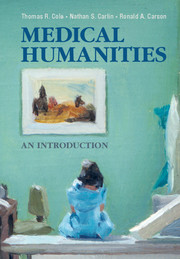Book contents
10 - Poetry and Moral Imagination
from Part II - Literature, the Arts, and Medicine
Summary
I don’t see any reason why doctors shouldn’t read a little poetry as a part of their training.
– Anatole BroyardAbstract
This chapter explores how poetry can contribute to medical humanities. Beginning with a discussion of how poetry deals with the raw material of human experience – including experiences of illness and injury, healing and grief, love and death – it examines five poems that are particularly relevant to students of medical humanities: Alan Shapiro’s “Someone Else,” James Dickey’s “The Scarred Girl,” Robert Cooperman’s “What They Don’t Know,” Stephen Knight’s “FROM The Fascinating Room,” and Sharon Olds’s “The Learner.” Then, with a focus on how poetry “makes language care,” it considers how these poems – experienced vicariously but intimately – animate our moral imagination and transport us into the lives of others in ways that enhance our empathetic understanding.
INTRODUCTION
Medical people are taught to read for facts and data, an undeniably useful skill. But there is so much more to the written (and spoken) word than information. We read for pleasure and inspiration as well as edii cation. We read because we want to learn and to be informed. And we read to deepen our knowledge and expand our horizons. Reading can broaden our experience and enrich our lives; it can enchant us, quicken our spirits, and shape our sentiments. To read for meaning yields sympathetic understanding; to read for inspiration yields hope, and possibly transformation. We filter our self-understanding and the way we see others through experiences encountered vicariously in our reading of imaginative literature. But poetry? Why poetry?
- Type
- Chapter
- Information
- Medical Humanities , pp. 168 - 182Publisher: Cambridge University PressPrint publication year: 2014



